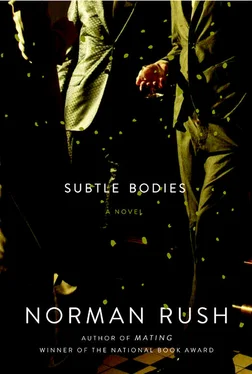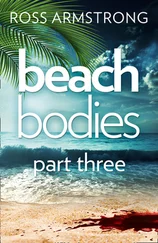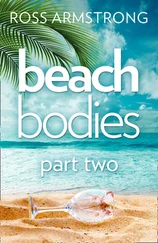Gruen was up. He was in the broom closet aka bathroom, running water, and repeatedly blowing his nose.
Joris said, “Man you know there’s a toilet on every floor, don’t you? And a shower in the first-floor one. Not very big, though.”
Gruen rejoined them. God he was really plump.
“I would like to add something,” Gruen said, acting stately. “We were friends …”
“I am coming to that,” Joris said, his voice raised.
Gruen got out of his bathrobe and gathered up his clothes. Then, standing facing out one of the great windows, dressed himself. Blasts of rain struck the glass. It was turning black, out.
For sex, Joris went to prostitutes. There were prostitutes of every caliber in Manhattan, and Joris had the money. This had gone on for years, was still going on, no doubt. Joris claimed he had never gotten an STD. And going to whores had given him a Decameron of stories. A drawback was that going to prostitutes meant having to use condoms all the time. Joris rarely saw his sons.
Joris said, “We tried as hard to be friends as anyone. And we were good friends. And what else. We were big moviegoers, cineastes, even, always at the Thalia or the Eighth Street. For a while we were a hiking club. We climbed Storm King. We hiked and then we stopped hiking. The girlfriends took over but we kept on the best we could. We carried books up to the tops of mountains and sat there and read them for forty-five minutes. In the dorm and also on Second Avenue we would sit and listen to good music, records, nobody allowed to speak. You could put it this way, we were a very strict book club run by Douglas. We made jokes. You could say that most of the time we carried out Douglas’s jokes. And here is the thing, my men. Nothing was funny that we did. Nothing. Almost. Stop objecting until you sit down with us, you there.” He meant Gruen.
Over his shoulder, Gruen said, “I’d like to point out that we were also dean’s list, all of us. And that we were getting grades fucking nicely. Everybody moved on, everybody did well.”
Joris groaned theatrically. “I’m almost through. And you’re right about that. There was something else we were getting at being …”
Ned said, “Molecular socialism.”
The other two knew what he meant. It was embarrassing to recall how seriously he had taken the whole thing, the world remade, friendship at the core of everything.
Gruen faced them in his dinnerwear, a heavy Irish white cable knit sweater, wide-leg khaki pants, loafers.
“Where are your socks?” Ned asked him.
“Every pair is wet since I got here.”
Ned went to his rucksack to dig out a pair to lend to Gruen.
Gruen looked flushed. He said, “Also don’t forget it wasn’t boring, the whole time, mostly. In the subway or waiting around for anything, we had games, like the Hollywood stars gave a picnic and Bogart brought the yogurt, you remember.”
Yes, Ned thought, plenty of word games: a bouncer was an excort and graffiti artists were ulterior decorators and Pinot Noir meant don’t urinate at night.
Joris was in the half-bath in the room they were sharing so Ned went upstairs to find the facility in Douglas’s studio. What looked like a narrow bookcase was the door to the micro-bath. It was at the end of the circle of desks by the stairs. It was nice inside. He sat down on the toilet. Taped to the door in front of him at eye level was an eight-by-ten reproduction of a Paul Klee painting, which amounted to a grid of dots of different colors, at the bottom left paling to dimness and then to nothing. It had been torn out of a bound volume by somebody. The painting’s title was DAS GANZE IST DÄMMERNED / THE WHOLE IS DIMMING.
Lo, potpourri in a tray on the toilet tank, a mass of rose petals and other petals. This was Douglas’s workplace bathroom. It was pretty feminine. Ned washed his hands and fingered the hand towels, delicate things. Women who love us, he thought, do things for us in ways they think we’ll love.
They were waiting.
We were so cineastic, Ned thought, but he rarely went to the movies now. Douglas had been serious about Film, writing tart notes to the Village Voice correcting the views of their house movie critic Andrew Sarris. And each of the friends had been assigned a physical double from the world of movies: Douglas’s had been Leslie Howard, Joris’s had been John Garfield, Elliot’s had been an all purpose B-movie villain named John Ireland, and Gruen’s double had been the athlete whose name he couldn’t think of who played Flash Gordon in Saturday serials. And he himself had been informed that he was the double of the wavy-haired leading man Marx Brother Zeppo, until he’d exploded at Douglas over the stupidity of it. He remained without a double. Flash Gordon had been Buster Crabbe.
Ned asked Joris if he went to the movies much.
“No. Not much. I don’t know. I don’t enjoy the experience.”
An intercom said to come to dinner. The effect was institutional.
Everybody got up. Gruen asked them how he looked. The truth was that he looked like a model for Big Man clothing, a handsome fat man. Joris answered by nodding vigorously and Ned did the same.
They descended to leave.
Rain blew in as they opened the tower door. Douglas inserting the word egad into every answer he gave in Cohen’s Medicis class had been funny to him.
They went single file into the night, Joris leading.
Even in the dark the disconcerting bulk and reach of the main house came through. The place was lit to the gills — the whole interior flushed with light, walkway fixtures blazing, shrubbery spotlit. And Ned had been told that there was more to the edifice than at first met the eye, e.g., three lower levels were built onto the back of the house, down the far side of the hill. Joris was plying the front-door knocker, a masterpiece of the smithy’s art.
Ned tapped Gruen’s shoulder. He said, “Hey remember the plan to buy an old manse in some rundown neighborhood near a good university and all of us retiring there together? Get a handyman special and work on it?” The idea had been to die together one by one as friends.
No one was answering the door.
Gruen said, “How I got along so well with Douglas was this. I said everything he said was great. I never said anything worse than Food for Thought.”
Ned said, “Probably a good idea, about the insights he kept sending.”
Gruen said, “Some of it was interesting. He had his cosmological scenarios. But I lied to him about following the syllabus. That was too much. I got hold of some of the titles, though, physically, thinking … someday, okay. He knew I wouldn’t read everything. Reflections on the Causes of Human Misery I didn’t finish. And it was short, an essay.”
“Ah, Barrington Moore,” Ned said.
“Barrington Moore. Who wrote a lot. Douglas loved him.”
The door opened and they all went in.
They seemed to be progressing from one waiting area to another. They had taken their coats off. They were in an annex off the front hall and they were still waiting.
There was ambient music. It was Dvořák. Ned said, “Douglas hated background music.”
Elliot appeared but only long enough to say he’d be right back. They were left to study the woodwork. It was like being inside a large armoire with soft lighting.
Since it was a sin to waste time, Ned decided to use the moment to agitate for the Convergence. He took a folded petition and a Bic pen from the inside pocket of his jacket.
Joris unfolded the petition, glanced at the heading, refolded it almost immediately and handed it back to Ned. His expression was apologetic.
Ned was startled. He assumed Joris had misunderstood what he’d given him.
Читать дальше











